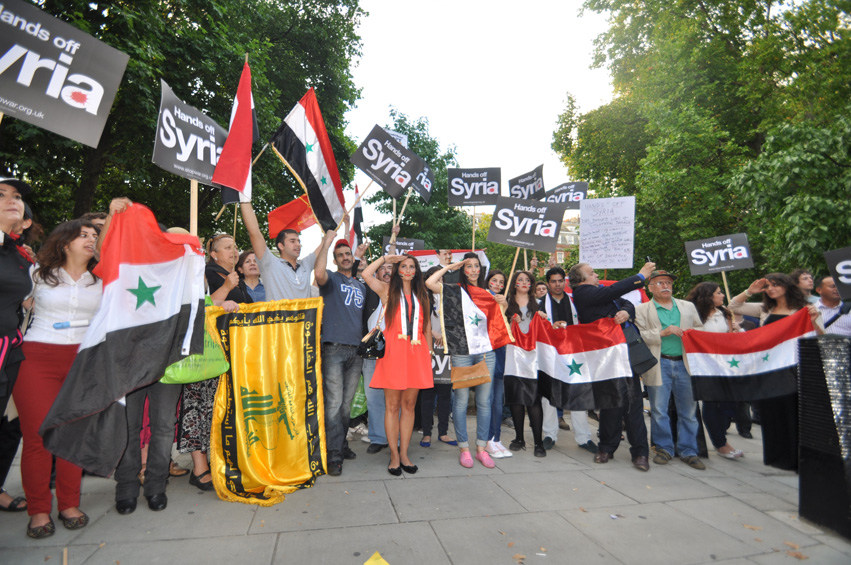
THE US Senator Richard Black has said that the ‘crisis’ in Syria ‘will be over quickly once (the) US withdraws its troops from Syrian territory.’
And in an interview published by the Russian Novosti News Agency, Black added that: ‘If we leave, I think the crisis will end very quickly and stability will be restored.’
That would mean, he then went on to say, that ‘the Syrian people can really recover.’
Black said too that the crisis in Syria could have finished immediately if the US and its allies had not intervened and ‘had not built bases for them in northeastern Syria and in al-Tanf area’.
Black also criticised calls to discuss the Syrian constitution, stressing that Syria’s current constitution ‘guarantees freedom of religion, women’s rights and the governance of law’.
Most recently, the Russian Deputy Foreign Minister Sergey Vershinin reiterated that Russia ‘is working to find a solution to the crisis in Syria and achieve stability in it’.
Vershinin averred that ‘Russia’s policy is based on respecting the sovereignty, political independence and territorial integrity of all the countries in the region,’ adding that it ‘does not have other bases and does not accept any side deals’.
Meanwhile, both Russian President Vladimir Putin and Chinese President Xi Jinping have confirmed just recently that they are ‘working together to resolve the crisis in Syria’.
In the course of a recent joint press conference, after signing a number of agreements, President Putin said that Russia and China ‘are working together to reach a settlement for the crisis in Syria’, affirming that ‘the two countries are identical or very similar regarding the most pressing international issues’.
Shortly after that, the Chairman of the Russian State Duma’s International Affairs Committee Leonid Slutsky renewed Russia’s will to ‘continue supporting Syria in counterterrorism and in the efforts exerted for restoring stability and security to it’.
During his meeting with Assistant Foreign and Expatriates Minister Ayman Sousan in Moscow last Tuesday, Slutsky stressed that Russia’s stance is firm with regards to the occupied Syrian Golan Heights, calling for avoiding ‘acts that would violate the sovereignty of Syria and lead to stirring tension in the region’.
The latest developments in Syria were discussed during the meeting, as Syria’s sovereignty and territorial integrity were asserted.
For his part, Sousan expressed Syria’s appreciation of Russia’s supportive stances in the face of the unjust war waged against Syria, including the economic blockade that increases the suffering of the Syrians.
Sousan also met with the Russian President’s Special Representative for the Middle East and Africa, Deputy Foreign Minister Mikhail Bogdanov, where the latest developments in Syria were discussed.
Bogdanov stressed the importance of approaching policies that ‘serve the interests of peoples of the region away from foreign interference in their domestic affairs’.
Then last Wednesday, speaking officially, Russian Foreign Ministry spokeswoman Maria Zakharova warned that foreign-sponsored Takfiri militants ‘are preparing for a chemical attack in Syria’s northwestern province of Idlib to implicate government troops and invent pretexts for possible foreign acts of aggression on the crisis-hit Arab country’.
Speaking in the Russian capital Moscow on Wednesday, Zakharova voiced her country’s concern over the unfolding situation in Idlib province.
Her statement above was at the same time illustrated with photographs of Syrian children and adults receiving ‘treatment for a suspected chemical attack at a makeshift clinic in the village of al-Shifuniyah in the Eastern Ghouta region on the outskirts of the capital Damascus, late on February 25, 2018’.
Zakharova went on to warn that terrorists are seeking to escalate tensions there through organising new false flag chemical attacks, and stressed that the discovery of a field hospital belonging to members of the so-called civil defence group the White Helmets in Syria’s western-central province of Hama constituted ‘a solid proof’ of that reality.
In fact, Syrian troops even discovered German-made medical equipment – at a field hospital belonging to the so-called civil defence group the White Helmets.
Zakharova highlighted that medical equipment, gas masks and their filters in addition to chemical protective clothing and equipment were recovered from the site, calling on the international community to deal seriously with the possible false flag operations and use of chemical weapons by Takfiri terrorist groups.
The top Russian official went on to say that terrorists’ dangerous and provocative actions in Syria’s western provinces – of Hama, Idlib and Latakia – which threaten Syrian civilians, military personnel and the Russia-run Hmeimim airbase, cannot be tolerated.
But despite terrorists’ aggressive assaults, Russia remains committed to the agreement on stabilisation of the situation in Idlib. Russian and Turkish military personnel are in constant contact to prevent any possible escalations, Zakharova said.
On April 14, 2018, the US, Britain and France carried out a string of airstrikes against Syria over a suspected chemical weapons attack on the city of Douma, located about 10 kilometres northeast of the capital Damascus.
Washington and its allies blamed Damascus for the Douma attack – an allegation rejected by the Syrian government.
At the same time, the Russian Defence Ministry warned that foreign-backed terrorists were ‘planning a false-flag chemical attack in Syria’s province of Idlib, as well as in the west of the Aleppo’.
Yet Western governments and their allies have never stopped pointing the finger at Damascus whenever an apparent chemical attack takes place. In fact, however, Syria surrendered its stockpile of chemical weapons in 2014 to a joint mission led by the United States and the Organisation for the Prohibition of Chemical Weapons (OPCW), which oversaw the destruction of the weaponry.
It has also consistently denied using chemical weapons.
Syria has been gripped by foreign-backed militancy since March 2011. But in fact, insists the Syrian government, ‘the Israeli regime and its Western and regional allies are aiding Takfiri terrorist groups that are wreaking havoc in the country’.